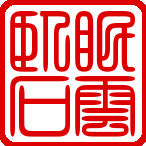Song of Tasting Tea at West Mountain Temple
Liu Yuxi of the Tang dynasty
Song of Tasting Tea at West Mountain Temple
Beyond the temple eaves, the mountain monks have many tea plants.
Spring arrives and the glow of the bamboo draws out new buds.
Like welcoming a guest, rise and smooth the robes to
Pick from all the lush growth the eagle beaks.
In a instant, the firing fills the room with fragrance.
For an elegant service, ply water from Jinsha,
Listen for the sound of rain and pines from the brazier.
White clouds fill the bowl, billowing here now there.
Even from afar, one whiff dispels the drunken night,
Cares are banished clean to the bone.
From sunny cliffs to shady ridges, each has a special quality,
But those cannot compare to this, moss-grown beneath the bamboo.
Yandi sampled flora but knew not this brew;
Tongjun was prescient yet knew not this flavor.
New buds are curled, not even half ever open.
From picking to brewing takes but a moment or so.
The aroma is like the scent of dew-soaked magnolia;
Next to the color of waves, the jade herb is peerless.
The monks say that the beautiful flavor is crucial to reclusion.
Pick, pick the rich, mellow leaves for the honored guest:
Don’t send it home.
Forget the brick well and bronze brazier,
For how can the spring leaves of even Mengshan and Guzhu
Ever survive the rigors of travel?
He who desires to know the pure, refreshing flavor of tea
Must be a man of sleeping clouds and creeping stones.
唐 劉禹錫
西山蘭若試茶歌
山僧後檐茶數叢
春來映竹抽新茸
宛然爲客振衣起
自傍芳叢摘鷹觜
斯須炒成滿室香
便酌砌下金沙水
驟雨鬆聲入鼎來
白雲滿盌花徘徊
悠揚噴鼻宿酲散
清峭徹骨煩襟開
陽崖陰嶺各殊氣
未若竹下莓苔地
炎帝雖嘗未解煎
桐君有籙那知味
新芽連拳半未舒
自摘至煎俄頃餘
木蘭霑露香微似
瑤草臨波色不如
僧言靈味宜幽寂
採採翹英爲嘉客
不辭緘封寄郡齋
甎井銅爐損標格
何況蒙山顧渚春
白泥赤印走風塵
欲知花乳清泠味
須是眠雲跂石人
Source
Liu Yuxi 劉禹錫 (772-842), “Xishan lanre shicha ge 西山蘭若試茶歌 (Song of Tasting Tea at West Mountain Temple, ca. 805) in Cao Yin 曹寅 (1658-1712 A.D.) and Peng Dingqiu 彭定求 (1645-1719 A.D.) et al., comps, Qüan Tangshi 全唐詩 (Complete Poetry of the Tang Dynasty, 1705), juan 356, no. 15.
Comment
First noted by Liu Yuxi circa 805, West Mountain Temple Tea was yet another example of loose leaf produced by a Buddhist monastery during the Tang dynasty. Half a century before, the poet Li Bo famously named Immortal Palm Tea, a loose leaf produced around 752 at the Jade Spring Temple in Jingzhou, modern Danyang, Hubei. The tea at West Mountain Temple was further noteworthy because it was grown amidst bamboo. Moreover, it was the special practice of the monks to serve guests tea that was not only from the monastery’s own garden but also picked, fired, and brewed especially for the occasion.
Liu Yuxi was a high official and a government reformist during the late Tang dynasty. At court, the reformists were opposed by supporters of the crown prince and by palace eunuchs. When the emperor died and the heir apparent ascended the throne in 805, the reformists were demoted and banished to provincial posts. As one of eight noted reformists, Liu Yuxi was sent into exile to become military adjutant at Langzhou, modern Changde, Hunan, where he spent ten years before being recalled to the capital in 815.
While in Langzhou, Liu Yuxi spent time at West Mountain Temple, a Buddhst monastery. The monks greeted visitors with a very special loose leaf tea. Planted in gardens behind the temple, tea was grown among moss and bamboo. When guests arrived, tea was picked from the bushes and immediately brought to the hall to be fired and brewed with Jinsha Spring water right in front of the visitors. The brew was so fresh that Liu Yuxi opined that not even Yandi the Fire Emperor (Shennong the Divine Cultivator) nor the Yellow Emperor’s physician Tongjun had ever tasted such a wonderful tea. He discouraged guests from sending the tea home, for it would suffer from the journey. Indeed, not even the rare teas of Mount Meng in Sichuan and of Huzhou in Zhejiang might survive the trip. Moreover, water and brewing method would not be the same as at the monastery. Liu Yuxi concluded that only a recluse residing at West Mountain Temple could know the true taste of tea.

